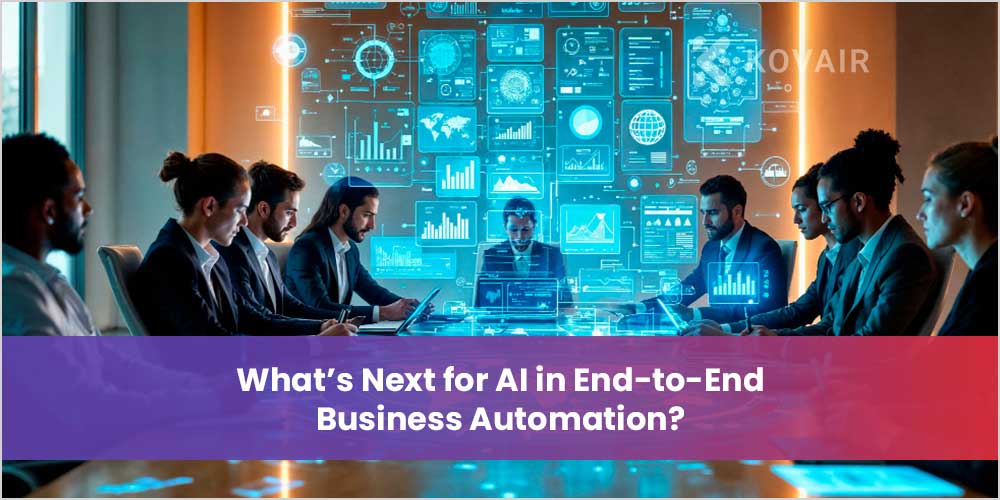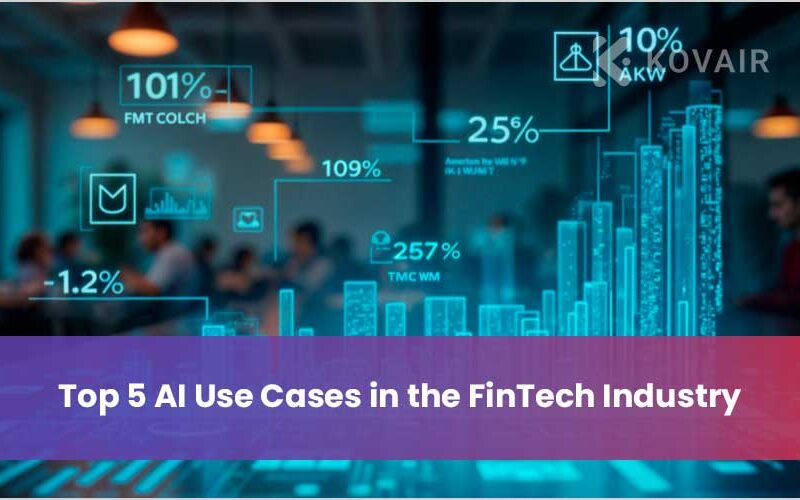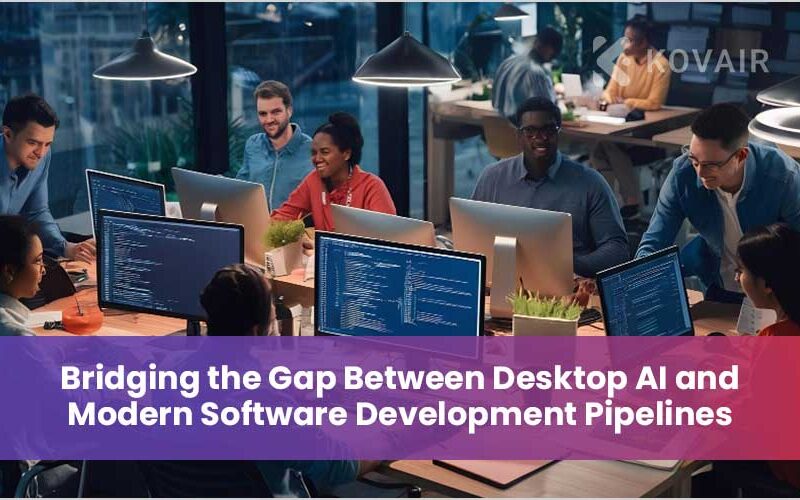
In a digital-first age, Artificial Intelligence (AI) is no longer a future word; it’s a reality that already exists and is transforming how businesses conduct business and provide their services and products. With automation of routine tasks to decision-making facilitation, it is entering the era of end-to-end business automation. In the coming years, it is vital to recognize the changing role of AI in business process automation to throw competition into chaos, improve customer experience at every touch point, and fuel long-term growth.
To move this forward, this blog will discuss how this technology displays its significant impact on business automation, the inclusive trends, the challenges many face during AI integration, and how one can prepare for the future–driven and fueled by AI at the core. Furthermore, businesses are recommended to partner with a reliable firm offering full-circle AI consulting services. This is because the firm will have adequate experience with AI integration and can facilitate the same for your business seamlessly.
The Evolution of Business Automation
Artificial Intelligence has evolved from a concept to a working approach that is largely revolutionizing the way businesses function. By 2025, AI will no longer be just a feature but the key enabler of end-to-end business automation.
This 360-degree transformation is highly evident across various industries where AI is enhanced:
- Operational efficiency
- Decision-making procedures
- Customer engagement
In healthcare, for instance, institutions such as the Mayo Clinic and the Cleveland Clinic are using AI to keep crucial stock in balance. By detecting impending shortages and aligning stock levels, these entities minimize wastage and keep vital equipment available on time.
Likewise, in retail, businesses such as Walmart are adopting AI shopping agents in the business to simplify the process of purchasing and respond to shifting consumer behavior and expectations in real time.
Thus, since the use of AI in business operations, firms can now solve more complex processes, automate end-to-end, increase productivity, and generate revenue. Firms can also hire a professional company that provides AI consulting services because it will integrate it effectively.
Key Trends Shaping AI-Driven Automation
1. Intelligent Process Automation (IPA)
To put it simply, Intelligent Process Automation (IPA) integrates AI capabilities, such as:
- Natural language processing
- Machine learning
These are both combined with:
- Robotic process automation technology
It enables more advanced work to be automated, such as understanding customer questions or processing unstructured documents. IPA systems are able to learn to develop according to new conditions based on patterns in data and reduce the requirement for ongoing human interaction.
2. Agentic AI Systems
Agentic AI are self-driven systems that can make decisions and take actions independently without outside human intervention. They are able to analyze data, learn from results autonomously, and adjust their activities accordingly. In business automation, agentic AI is able to drive end-to-end processes, from order completion to customer support, with utmost effectiveness and responsiveness.
3. AI-Enhanced Decision-Making
Real-time processing of huge data sets using AI-based tools facilitates businesses with better decision-making. Predictive analytics allows organizations to foretell market trends, customer reactions, and operational threats, and accordingly form adaptive strategies. To leverage this intelligent decision-making, you may approach an expert firm providing AI consulting services.
4. Customized Customer Experiences
AI intelligently assists businesses in delivering personalized experiences. It analyzes customer data and then predicts preferences so that it can display content accordingly. AI-powered personalization drives customer satisfaction and loyalty as the entire customer journey is tailored right from personalized product recommendations to tailored customer support.
5. Internet of Things (IoT) integration
Working collectively, AI and IoT provide for physical operations to be constantly monitored automatically. In manufacturing, for example, AI can conclude equipment failure from sensor data from IoT and plan for maintenance in advance, reducing downtime and cost.
Key Challenges in AI Automation Implementation
- Data Quality and Availability: AI solutions have to work on high-quality, relevant data to operate effectively. Data completeness and accuracy are paramount.
- Change Management: It involves process and employee job changes that have the potential to be resisted. Remember that implementing robust change management measures are crucial to ensure a seamless integration of advanced technologies.
- Ethical and Compliance Considerations: AI solutions have to be designed to meet regulations and ethical codes, especially data privacy and decision-making transparency.
Preparing for the Future
- Invest in People and Training: Utilizing internal talent in AI and automation technologies improves implementation and management.
- Develop an Innovative Culture: Innovation and adopting new technologies can result in more innovative solutions and competitiveness.
- Partner with Technology Providers: Partnering with mature technology providers can potentially implement AI solutions designed to meet business requirements.
Conclusion
In short, AI will revolutionize business automation to a degree, from mere task execution to smart, adaptive process management.
By adopting AI-powered automation, companies can attain the following:
- Increased efficiency
- Operational Agility
- Customer satisfaction
But the path to end-to-end business automation is not linear. It needs planning, capital investment, and flexibility. The payoff is well worth it, and it’s a strategic necessity for visionary companies. Second, they must work with a reputable firm providing AI consulting services such as Successive Digital. They strategically and seamlessly assist their clients in planning, deploying, and implementing AI-powered automation.




Great insights, Emily! I particularly appreciate the emphasis on agentic AI—breaking automation into autonomous, interoperable agents truly reflects the future of end‑to‑end business workflows. It mirrors how our brains operate: specialized modules working together